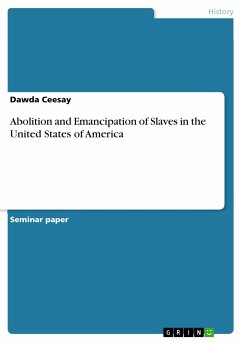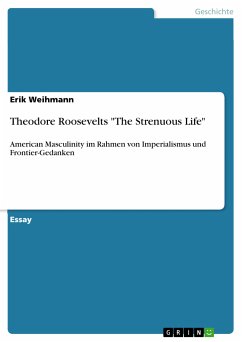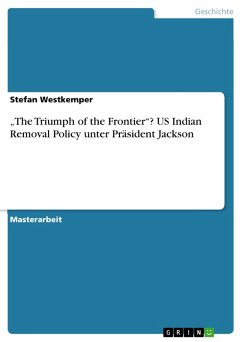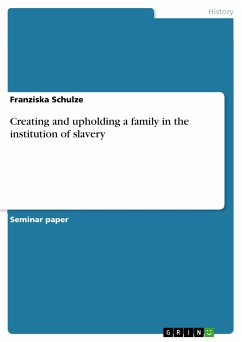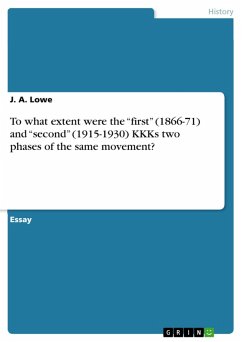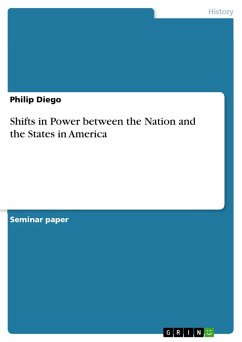
Shifts in Power between the Nation and the States in America (eBook, PDF)
Sofort per Download lieferbar
Statt: 15,95 €**
5,99 €
inkl. MwSt. und vom Verlag festgesetzt.
**Preis der gedruckten Ausgabe (Broschiertes Buch)
Alle Infos zum eBook verschenkenWeitere Ausgaben:

PAYBACK Punkte
0 °P sammeln!
Seminar paper from the year 2012 in the subject History - America, grade: B, The University of Chicago, language: English, abstract: The highest court in the United States (the Supreme Court) made a ruling in 1857 that Africans (blacks) had no rights, could not become U.S citizens, and that Congress had no powers to abolish slavery. The aftermath of the ruling saw the United States suffer one of the bloodiest wars in world history - the Civil War. In less than ten years since the ruling was made, Congress together with the Northern states addressed the biases in the ruling. The biases were add...
Seminar paper from the year 2012 in the subject History - America, grade: B, The University of Chicago, language: English, abstract: The highest court in the United States (the Supreme Court) made a ruling in 1857 that Africans (blacks) had no rights, could not become U.S citizens, and that Congress had no powers to abolish slavery. The aftermath of the ruling saw the United States suffer one of the bloodiest wars in world history - the Civil War. In less than ten years since the ruling was made, Congress together with the Northern states addressed the biases in the ruling. The biases were addressed through the amendment of the constitution and the civil rights statute. Through the 13th Amendment, slavery was abolished in all parts of the United States. The 14th Amendment and the Civil Rights Act of 1866 guaranteed citizenship for all qualified, natural-born, and naturalized Americans, inclusive of former slaves and free blacks. The civil rights statute, in addition, authorized the transfer of cases from state to federal courts in cases where citizens' rights could not be enforced through state systems of justice. The 14th Amendment also prohibited states from infringing the rights enjoyed by American citizens, as well as, ensuring every citizen had the right to due process and equal protection of the law (Kaczorowski, 1987, p. 45). The Congressional Republicans held the view that the14th Amendment and Civil Rights Act of 1886 provided a good ground for revolutionary change in the constitution of the United States. In observance of the 19th century concept of federalism, there was a need for Congress to legislate for the protection of civil rights. Had the status and fundamental rights of citizenship been the rights enjoyed by individuals owing to their state citizenship, the Congress would have had no authority to ensure for their protection. The fundamental rights would have been out of the jurisdiction of the states. The Fourteenth Amendment and the Civil Rights Statute that conferred citizenship on all Americans, and expanded its federally enforceable guarantees to include civil rights protection was surely a revolutionary twist in American federalism (Kaczorowski, 1987, p. 47).
Dieser Download kann aus rechtlichen Gründen nur mit Rechnungsadresse in A, B, BG, CY, CZ, D, DK, EW, E, FIN, F, GR, HR, H, IRL, I, LT, L, LR, M, NL, PL, P, R, S, SLO, SK ausgeliefert werden.




